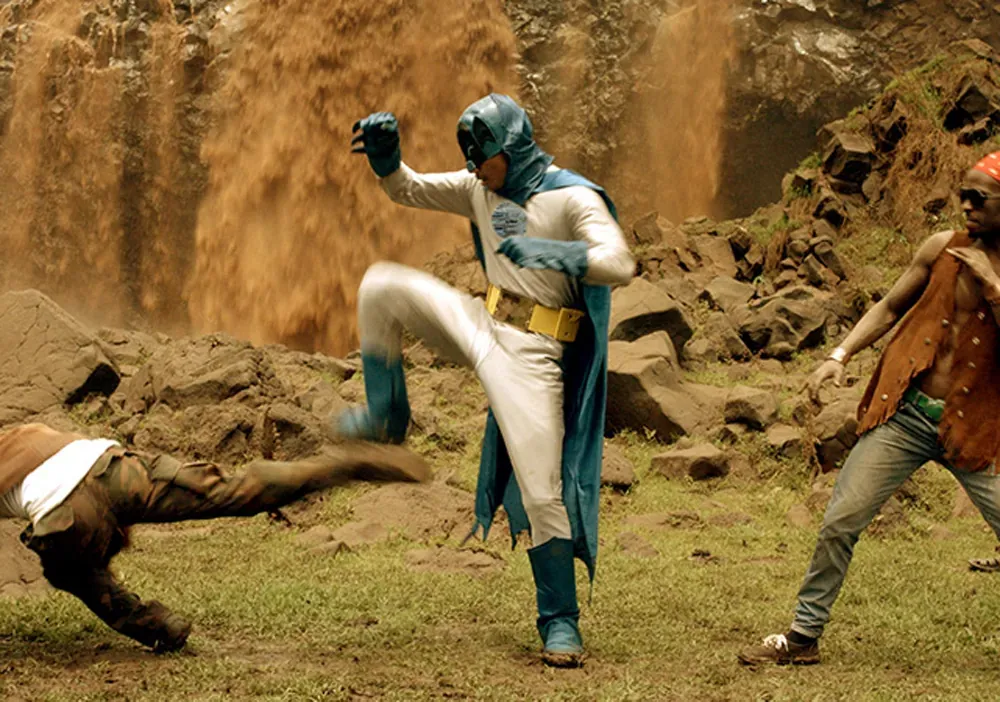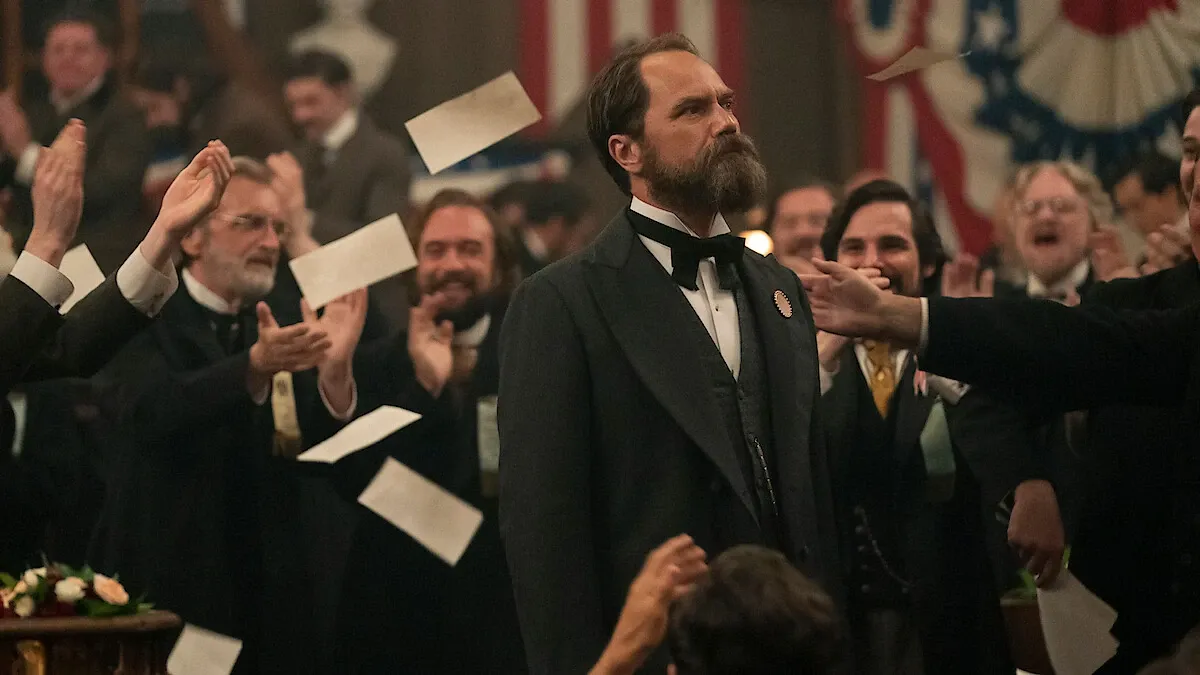Tallinn, Estonia, in the near future. Or maybe it’s the past. In this world, time is erratic. It’s a place where a global neural network called Psychobook monitors all life, even your hopes and dreams.
Out of nowhere, the CIA’s special division is alerted of the network being attacked by a virus known only as The Soviet Union. To combat this red menace, the director of operations sends two of his best agents deep into Psychobook to eradicate the source. Unfortunately, something goes wrong, and the agents are separated, leaving DT Gagano (an utterly charming Daniel Tadesse) to fend for himself in a hostile server called Beta Africa. Which, in turn, is controlled by a Batsuit-wearing dictator called Batfro (Solomon Tashe).
Questions fly hard and fast: Can Gagano escape, and one day achieve his dream of opening his pizzeria? Will his wife become a kickboxing instructor? What does Stalin have in store for them both? And could Roy Mascarone, the wandering drifter in Gagano’s psyche, really be Jesus?
If this all sounds highly unusual, it’s kind of the point. JESUS SHOWS YOU THE WAY TO THE HIGHWAY is a love letter to a time when video rental stores were treasure vaults, each hiding in their depths endless amounts of low-budget absurdity. The kind with covers depicting adventures far beyond their meager budgets. From Italian James Bond clones to cannibal sex romps, anything and everything was kosher in this bizarre world of direct-to-video. In crafting JESUS, director Miguel Llanso studied the wealth of material available to him and had one question: What if all of these took place in a single movie?
The result is a surrealist deep dive into a dreamland where anything is possible. Reality itself looks like a 1970s pastiche; Psychobook is done entirely in stop-motion; Beta Africa is directly lifted from the Adam West serials. Even the soundtrack is wild, free-form jazz, which gives the film a wonderfully loose and impulsive feel. Anything will happen because it can happen.
What could easily translate to a visual cacophony on paper feels natural and almost poetic on screen. Llanso’s direction recalls influences from auteurs such as David Lynch and Christopher Nolan and tips its hat towards Japanese master Satoshi Kon in how his erratic cutaways feel like a sort of visual ellipsis. They’re not quite asides but more akin to our mind wandering as it catches a whiff of a memory from long ago. The storytelling is so self-assured that the transitions between aspect ratios and even film stock become a part of a new language, one we pick up piece by piece as the story goes along.
Not that transitions between time and space are anything new when it comes to film. The aforementioned filmmakers, Lynch, Nolan, and Kon, all deal heavily with these themes in their films. PAPRIKA, directed by Kon, is especially iconic in its depiction of perceived reality. But where JESUS might not triumph in originality, it makes up for it with inventiveness and heart.
There are outrageously inventive moments in the first 15 minutes of the feature that could make up for a climax to lesser films, and they’re barely a warm-up act here. Where else could you see a stop-motion animated knife fight in an abandoned factory, fought between two opposing agents dressed as Steve McQueen and Josef Stalin?
It’s a film that is utterly sincere as well. At a time when cheap snark seems to be the currency of the realm, and any kind of genuine willingness to be goofy is mocked at every turn, it’s a genuine treat to see something take itself just serious enough to be charming. Gagano or his compatriots are never the butts of the joke; they’re our heroes through thick and thin, even as the events themselves are ludicrous. It has the same kind of liberated childlike glee found in Noel Fielding’s groundbreaking comedy series, THE MIGHTY BOOSH.
JESUS SHOWS YOU THE WAY TO THE HIGHWAY is cinematic euphoria. A vivid fever dream where the waterfalls of The Nile River can be found just around the corner of a lake in Estonia, where the sun sets on a Technicolor universe. Silly and absurd, but also honest and pure.













